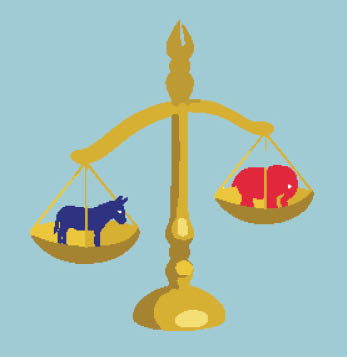Supreme Court questions the legality of redrawing district lines through gerrymandering
Many of us hear the word “gerrymandering” for the first time during high school. However, after class, we tend to forget the word even exists. Gerrymandering affects the way that each district’s votes are counted. For instance, gerrymandering could allow a presidential candidate to win the electoral college vote for that district without winning the popular vote.
Gerrymandering allows the party in office to redraw the electoral districts to benefit their party in upcoming elections. While there are some restrictions, such as not being able to eliminate the minority vote, the party can still maximize the number of districts that they are likely to win in elections.
Gerrymandering has almost no effect on presidential elections. “Every state except Maine and Nebraska conducts presidential elections on a statewide basis, and state borders are fixed and therefore not subject to gerrymandering,” says the Huffington Post.
This also applies to the U.S. Senate elections. However, if more states begin to follow Maine and Nebraska, gerrymandering would be likely to play a larger role in presidential elections.
The issue of gerrymandering has recently been taken to the Supreme Court. Ending the practice of gerrymandering completely would mitigate political polarization within the United States and force politicians to appeal to both sides of the political spectrum to win elections. Some states use gerrymandering to create safe seats in a general election where incumbents don’t have an opponent.
A professor at the University of Wisconsin, along with a group of Democratic votes, contended that the state legislative district lines constituted unconstitutional gerrymandering. In the past, the Supreme Court has refused to deal with these issues unless they involved racial discrimination.
However, in the Wisconsin case, race and ethnicity do not play a part. The plaintiffs are asking the court to invalidate the district lines drawn purely because they favor Republicans over Democrats.
It has been discussed that Justice Anthony Kennedy will be the swing vote for the Supreme Court. In Vieth v. Jubelirer in 2004, Kennedy indicated that the justices might have a role to play if they could find a standard to apply to gerrymandering.
No decision made by the Supreme Court will automatically fix things. But if the court continues to avoid the issue, the system will only get worse.




